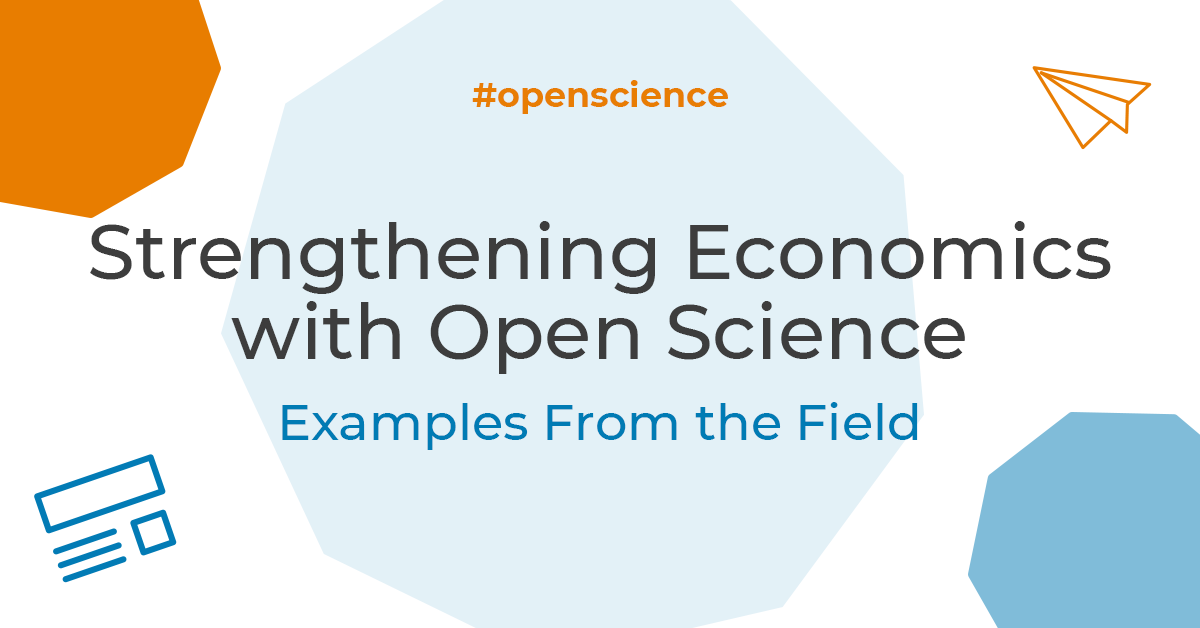At a symposium on research transparency in economics, researchers exchanged ideas in Berlin. This blogpost highlights a selection of the exemplary collaborative practices mentioned there and shows how Open Science can work in economics and business studies.
The ZBW regularly hosts Open Science events for economics and business studies researchers, including one in Berlin on April 27, 2023. After an initial meet-up to discuss open practices in economics, the symposium "Open Science – Research Transparency in Economics" (German) started in the afternoon. Economics researchers shared their experiences with open practices and gave the audience some food for thought. Here is a selection of the activities presented.
Real-time transparent collaborative forecasts and nowcasts
The Covid19-Nowcasthub (German), presented by Professor Melanie Schienle, is a platform for predicting hospitalization incidence. It is based on a collaborative approach. The prediction quality was improved by combining multiple models from different teams and sharing them with each other. Together, the prediction quality and combination of the individual prediction models were assessed, evaluated, and interpreted. The forecast data, as well as the models, are openly available for reuse on GitHub. The studies evaluating and combining the predictive models were preregistered. Transparency and collaboration served to promote confidence in the results in addition to quality assurance.
Open Science Data Center
The Collaborative Research Center SFB TRR 266 analyses the impact of accounting and taxation on corporate transparency and the effect of regulation and corporate transparency on the economy and the society, aiming to develop effective regulation for corporate transparency and a transparent tax system. The members of the SFB, presented by Professor Joachim Gassen, are committed to the principles of Open Science and make their research work transparent. The SFB's Open Science Data Center provides the necessary infrastructure for this. Github is used by the SFB as a code repository.
Highly reused R packages on Github
As a good example of Open Science practiced in economics, Prof. Dr. Gassen called Vincent Arel-Bundock, who conducts research at the University of Montréal on international tax policy and foreign direct investment, among other topics, and shares many of his findings with the research community. He provides value-added R packages reused by many others on GitHub. This example shows how open practices can achieve impact in the area of reuse when they are applied by other researchers.
This is how Open Science can work in economics and business studies. In order to foster open practices in economics and business studies, the topics “Incentives, Culture, Conflict Readiness” and “Education” were identified as central challenges in the meet-up mentioned at the beginning of this blog post. Specifically on the latter topic, the ZBW will invite business and economics researchers to another meet-up in the fall to discuss concrete implementation steps.
Further information
The symposium discussed other topics, such as work culture in economics, which can be read in the blog post on ZBW-MediaTalk.
Slides and photos of the event can be found on the symposium website (German).
Another tip: If you want to be part of future Open Science Meet-Ups, please subscribe to the Open Economics Guide newsletter so you don't miss a date.
